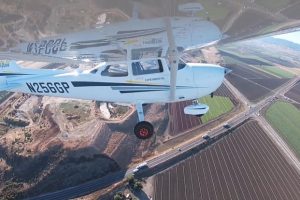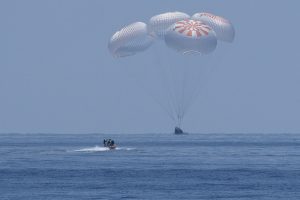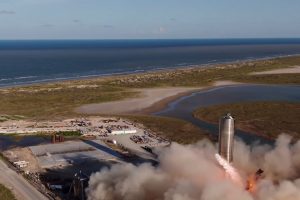When the Tesla Roadster and its Starman occupant reached space in 2018 on the maiden voyage of Falcon Heavy, it joined the ranks of the impressive collection of human-made objects that have left Earth: The General Catalog of Artificial Space Objects (GCAT). It is the most extensive compilation of publicly available space object data and its author recently released it in full for open source use.
Currently with the Harvard-Smithsonian Center for Astrophysics, Jonathan McDowell developed GCAT as a pursuit that started in his Apollo-inspired childhood for about 40 years.
“It was hard for me growing up in England to get details about space because the media there weren’t as interested in it as the U.S. media, so in a slightly obsessive way I started making a list of rocket launches… Now I have the best list,” McDowell told VICE in recent comments. In his younger days, lack of knowledge seems to have only been the beginning of the difficulties which the astronomer was willing to take on for his project. As detailed to VICE, McDowell even traveled to locations of the international space agency to obtain their old rocket lists, and even learned Russian to translate the space object data from that region.
While McDowell has been gathering his catalog data for decades, more recent events prompted the movement to eventually bring all of his work online. The threats of COVID-19 and “imminent death” undermined the intent of the database. “There’s no point if it dies with me,” he told VICE. It had been in his plans to publish the GCAT, but the pandemic moved its priority to the top of McDowell’s personal bucket list.

So, what exactly might one use the GCAT for? McDowell had his own suggestions, including the determination of how many working satellites are currently in space. Since the data is easy to export into software that allows sorting of tab-delimited files, one could perhaps also look at the amount of debris produced over the years to get a general picture for how active spaceflight operations were in the past or how they may be progressing. Plenty of information about each object’s origin and owner is included for this kind of research.
One of the GCAT data sets tracks failed objects that would have otherwise made it to orbit. As an example, looking at the number of items from failed launch attempts in 1958 (52) gives a hint as to how intense the space race between the US and the Soviet Union was at the time. Data browsing could be used for general historical inquiry as well. For instance, Sputnik 1, launched by the Soviet Union on October 4, 1957, is object 00001; the Eagle lander still on the Moon from Apollo 11’s mission is object #04041; and the Tesla Roadster is object #43205.
Some of the data can inspire more historical awareness such as the listing of tools lost during on-orbit construction of the Soviets’ Mir Space Station in 1986. Of course, reminders of significant spaceflight misfortunes are also included like the Challenger Space Shuttle explosion in 1986 and SpaceX’s CRS-7 ISS resupply mission failure in 2015.

“My audience is the historian 1,000 years from now,” McDowell explained. “I’m imagining that 1,000 years from now there will be more people living off Earth than on, and that they will look back to this moment in history as critically important.” For fans of Star Trek, this type of record keeping certainly seems to be relevant to future humans more often than not (away mission, anyone?). Perhaps that type of science fiction storyline will transpire into reality, just as so many of SpaceX’s achievements have done already.
Interestingly enough, McDowell is working on another project to track deep space objects beyond Earth’s orbit. Will space debris take center stage around Mars and beyond like it does around our own planet? Seeing the progress in one comprehensive database will certainly be an interesting way to show just how far humans have come since object #00001.
Want to buy a Tesla Model 3, Model Y, Model S, or Model X? Feel free to use my referral code to get some free Supercharging miles with your purchase: http://ts.la/guanyu3423
You can also get a $100 discount on Tesla Solar with that code. Let’s help accelerate the advent of a sustainable future.





